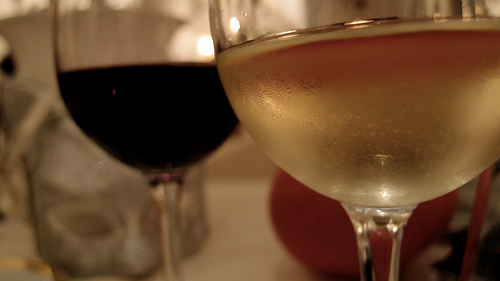
“The purpose of life is not to be happy. It is to be useful, to be honorable, to be compassionate, to have it make some difference that you have lived and lived well.”
– Ralph Waldo Emerson
We’ve all heard it and we’ve all said it. “I just want to be happy.” Or “All I want for my children is happiness.” Or “Why can’t you just be happy?”
I know that I’ve said these things myself a million times, but when I really think about it, I don’t think that this is what I want at all.
I do not want a happy life.
To be clear, I do not live an unhappy life either. I do not wish to be a martyr or to walk around with an Eeyore-like cloud of woe-is-me pessimism. But I don’t want a happy life either. Because, quite frankly, happiness – and the quest to feel happy – tends to be a bit overrated and inadequate, and I want more.

If the media and the number of bestselling books on the market are any indication, however, I am in the minority on this one though. Happiness, we are told, is the secret key that will unlock a hidden door, the Holy Grail of our human existence.
Many of us are heeding the advice and answering the call. In fact, a recent Gallup study shows that Americans are happier than we’ve been in years. Truthfully, if asked, I would count myself among these “happy” Americans. I am, for the most part, content and satisfied, blessed and lucky to have many loving people and positive relationships in my life, all of which bring me a great deal of joy.
Yet, despite our increasing happiness, it seems that we are still a little restless, searching for that missing piece of the puzzle. According to the Atlantic, even though nearly 60 percent of Americans report feeling happy, only 40 percent say that they have not discovered a satisfying life purpose. This discrepancy between happiness and meaning seems to indicate several key shortcomings with a “happy” life.
First, happiness tends to be a fleeting, temporary emotion that is oftentimes highly dependent on external factors. Like Huffington Post blogger Devon Corneal writes, “happiness is easy to attain in short bursts, but hard to maintain over time.” Happiness is a mood, an emotion, and a tenuous one at best. I have noticed that many times when I am experiencing feelings of considerable happiness, the feeling is often overshadowed by a fear that the happiness will fade, that around the next corner lurks a masked thief waiting to rob me of my bliss. A self-fulfilling prophecy? Perhaps. But a typical – and common – human response, nonetheless.
What’s more, research has shown that the quest for happiness can actually leave people feeling less happy, creating one more “standard” to which we are measuring ourselves and feeling as if we are falling short.

And, perhaps most importantly, some of the most rewarding and purposeful things in life – things like parenting and forgiveness and tending to the needs of others – don’t always make me feel happy. I treasure my children, but I can assure you that when I am in the trenches of a five alarm tantrum, I am not feeling happy. When I’m in the midst of time-outs or explaining to my disgruntled son why he needs to eat his broccoli, I am feeling anything but happy. Similarly, forgiveness – true forgiveness – does not necessarily make me feel warm and fuzzy; rather, it can be somewhat painful and gut-wrenching, yet the act of forgiving is liberating and satisfying and purposeful.
According to the authors of a recent study published in Journal of Positive Psychology, “Happiness without meaning characterizes a relatively shallow, self-absorbed or even selfish life, in which things go well, needs and desire are easily satisfied, and difficult or taxing entanglements are avoided.” Conversely, a meaningful life transcends the self – and the present moment – to provide a more enduring and substantial fulfillment. Research suggests that having purpose and meaning in life increases one’s sense of well-being and satisfaction, improves an individual’s mental and physical health, and enhances resiliency and self-esteem.
Not surprisingly, though, a meaningful life often comes with a downside. Individuals who report having a meaningful life often worry more and have higher levels of stress and anxiety. Since their actions are connected to something bigger than themselves and their own happiness, they tend to feel the weight of being responsible for the happiness of others more acutely.
So, while happiness can be somewhat fleeting, I don’t think that a life committed to sacrifice and always putting one’s own needs on the backburner is the answer either. Quite simply, life is much too precious not to be enjoyed, savored, and treasured, completely and fully.
So, what is the answer? Which is better, a happy life or a meaningful life?

Well, I would suggest that neither is better. There has to be a middle ground. There has to be a way to live a meaningful life, while enjoying life. There has to be a way to feel content while living with purpose. There has to be a way to live a meaningful life, filled with joy and purpose – a joyposeful life.
By deriving joy from the happiness of others, instead of our own, we can create a cycle of perpetual giving and receiving. By acknowledging that, as part of the cosmic whole, we have an obligation to contribute to society and the greater good, we can live a life with meaning and significance. By appreciating the spectacular goodness and inherent brevity of this human existence, we can live a life of sustainable happiness and contented joy. By knowing the pleasure that comes when we look outside ourselves and prioritize the needs of others, we can live a life with dedicated intention and valuable purpose.
Happiness, I have found, is like a fruity, sweet mimosa – soft, pleasant, and fun, but somewhat flimsy. A joyposeful life, on the other hand, is like a heady, thick cabernet or smooth, aged bourbon – impactful, multidimensional, complex, and substantial. When I drink a glass of cabernet or sip at a tumbler of bourbon, it is impossible not to notice that I am drinking something worthwhile. As much as I like a cheery mimosa every now and then, I much prefer a rich and heavy, crimson cabernet, with its continual depth and fortitude.

I do not want a happy life. I want more. I want a JOYPOSEFUL life. A life of compassion, kindness, and service. A life of simple pleasures, contentment, and peace. A life of significance, resiliency, and courage.
Certainly, a joyposeful life takes work – hard work. And it takes awareness, intuition, tough choices, and the willingness to get hurt every now and then. But most importantly, I think, it takes the confidence to know that a life of joy and purpose, happiness and meaning is possible. It takes the belief that we deserve – and are called – to live a life that is nothing short of joyposeful.
What do you think is more important – a happy life or meaningful life? Or both? How do you create a joyposeful life?
*********
Thank you all for your continued support. Please help me continue to grow this website, by sharing this post or another one via the buttons below, or by recommending my Facebook page to others. Your comments, emails, tweets, likes, and shares all mean more to me than you could possibly know. Thank you from the bottom of my heart. Truly.

12 Comments
Reading through this and passing all those delicious photos I am now craving a drink, but it’s too early. Or as they say, it’s 5 o’clock somewhere. On a more serious note your post rocks. Oops, I might be talking about ice cubes in a glass. Really, I couldn’t agree more. I like your word, joyposeful. The thing for me is I have so much liberal guilt that it’s difficult to be happy when I see how so many others struggle in the world. I want to do something about it. Lately I’ve been attempting to give people the benefit of the doubt. To show more compassion. It’s tough sometimes. I agree with your quote, happiness without meaning is shallow. Let’s not make every issue about “me.” What’s good for all of us? Terrific post, Christie. And I think I have gone on long enough..
Ohmiword, Steph, you are speaking my mind. I’m constantly torn between personal satisfaction and doing something for the greater good and those in need. It is a hard, hard balancing act.
Wow, this post really made me think. I, too, am a person who “just wants to be happy,” but I find the prayer I say the most is one asking for the strength to be a good person – that’s really all I’ve ever asked for because in my mind I associate being a good person with being happy – being happy enough to be a good person. “Joyposeful” I. Love. That! Thank you for this.
Thank YOU for your thoughts. I can totally relate to you prayer. That is just lovely. Thank you for sharing that.
I love, love, love this post. I think striving to live a life filled with joy, meaning and purpose is ultimately far more fulfilling than trying to find happiness, which I think can be kind of one-dimensional. Because to live a fulfilled and joyful life, I don’t think it’s necessary to be happy all the time. I think that some of life’s most complex and beautiful moments can be found in the hard and unhappy things, and a full life embraces both the light and the dark.
Thanks so much, Samantha! You are so right.
I think the answer is living a life of gratitude. You can be wealthy or poor but still be happy as long as you have mastered the art of gratitude.
I think that not being happy because others are struggling is a misuse of the gift we have been given. If we are fortunate to have, be grateful for it. That does not mean you should not care about others pain or hardships, but it also does not mean you can’t enjoy your gifts.
Excellent points, Susie. Perhaps gratitude combined with purposeful action to help others can create a “joyposeful” life AND a better world. Thanks for reading and commenting.
I loved every word of this. I’ve struggled lately with superficial “happiness” versus purpose and making my years on this planet worthwhile. I want to feel joy, but more than that, I want to effect change, make a difference. I want to MATTER.
Only the lucky fool can live a truly happy and meaningless life.
That was a dumb post – I’m never posting again!
Hi Christie – as a new reader to your blog I though I’d just leave a quick comment here to say I’ve been enjoying it a lot. Cheers! Shaun